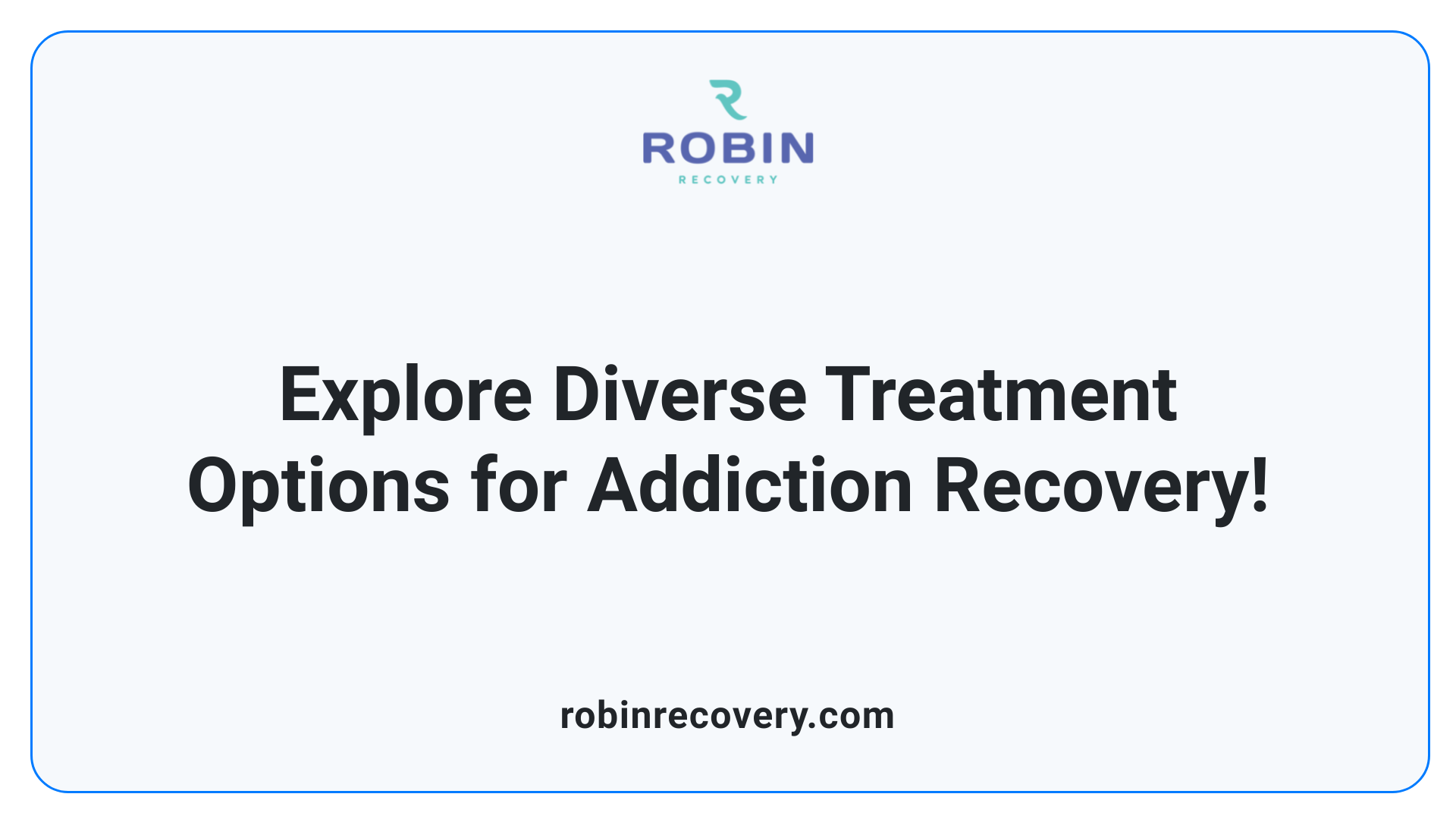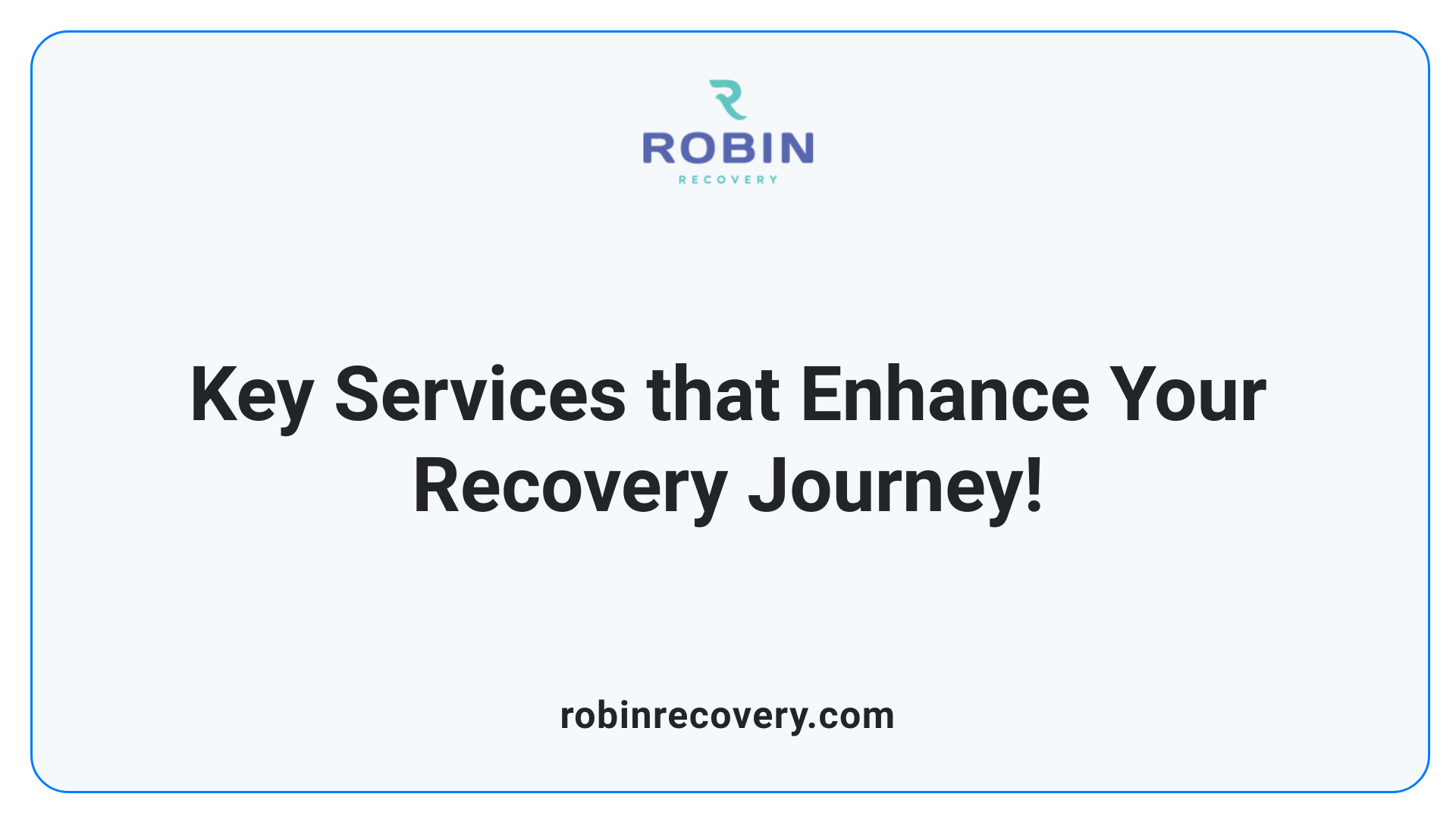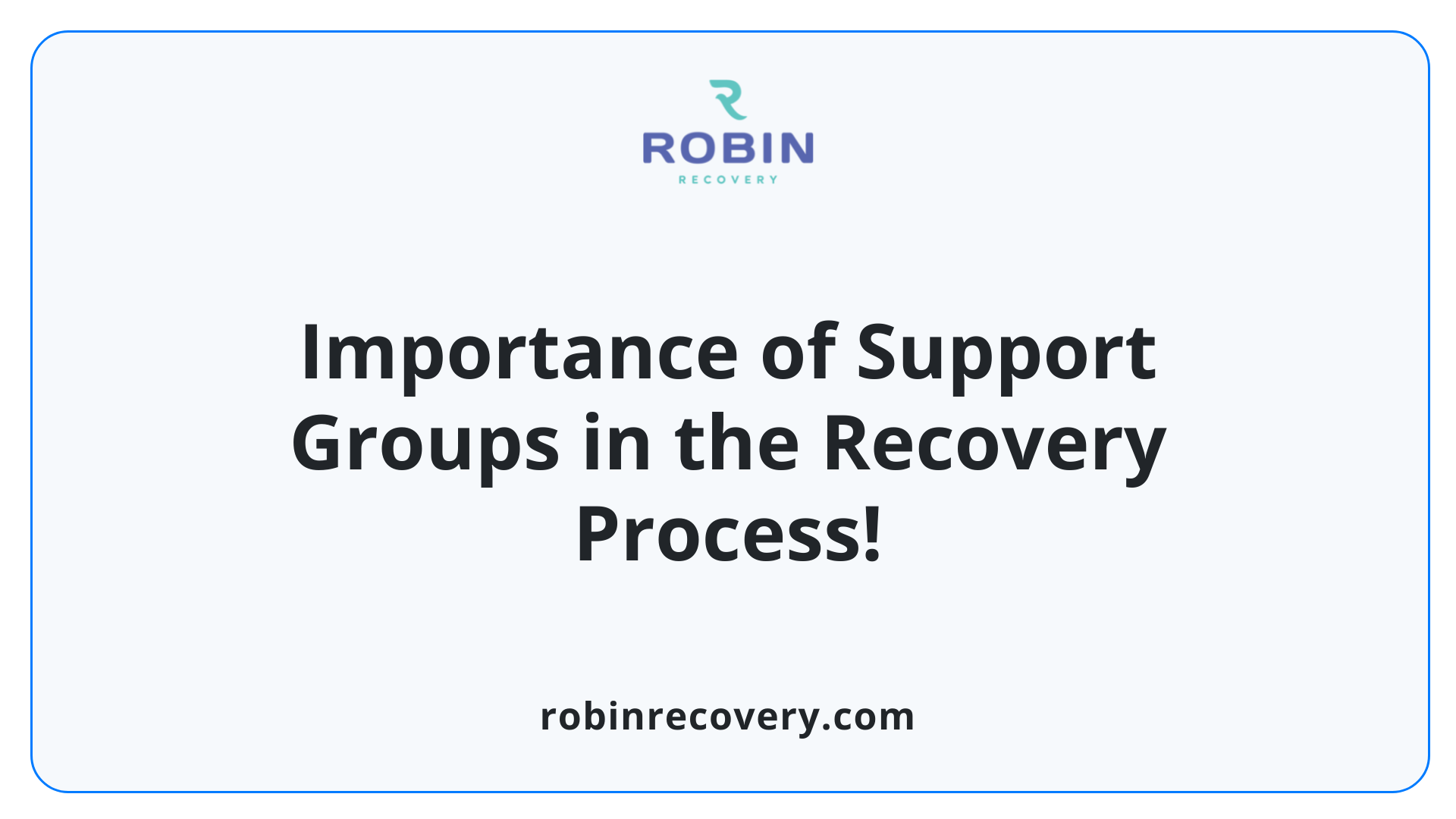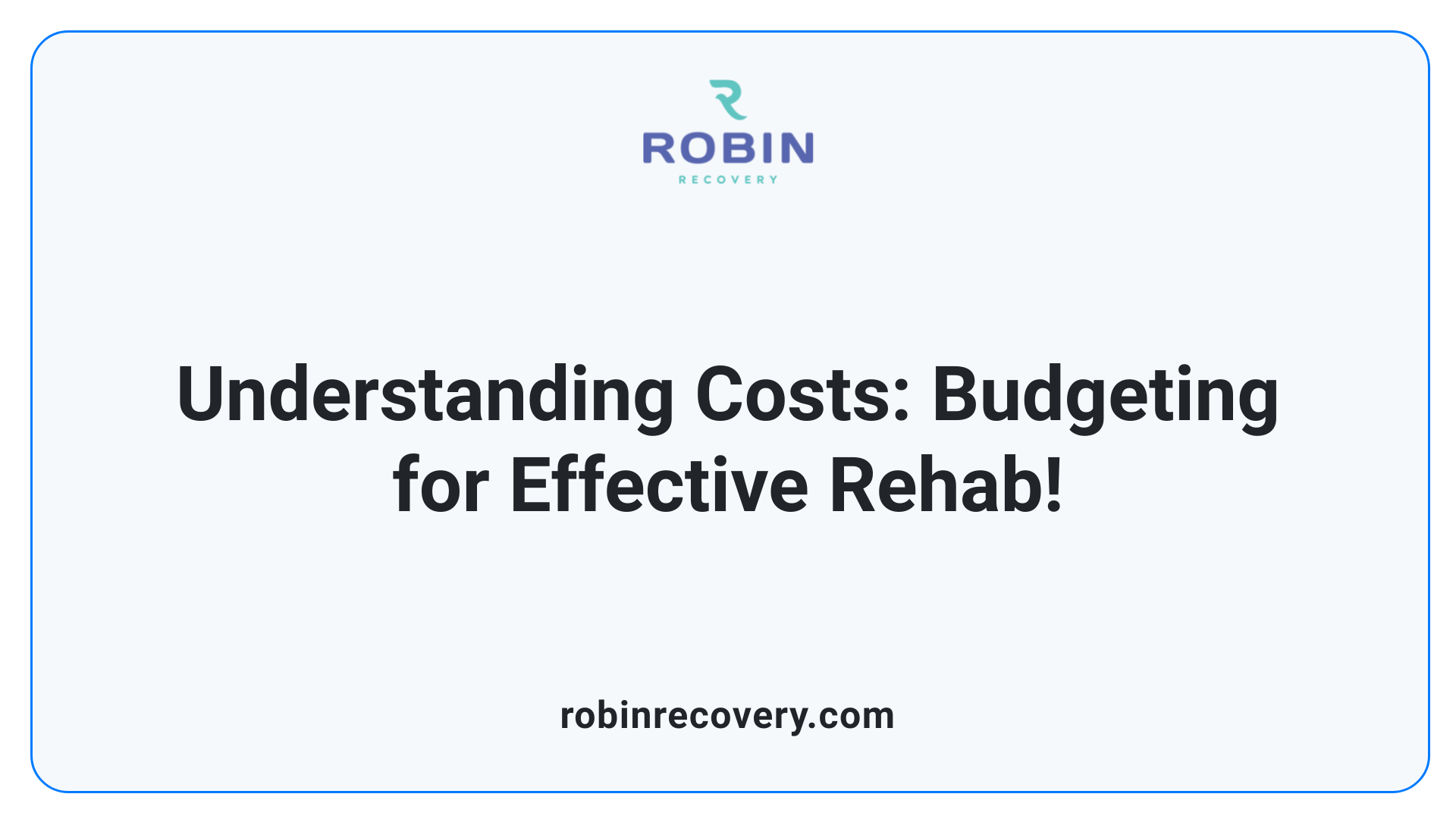Find Addiction Recovery at a Drug Rehab in PA

Understanding the Need for Rehab Facilities
In Pennsylvania, finding the right drug rehabilitation facility can make a significant difference in the journey to recovery. With a plethora of options available, individuals and families in search of effective solutions for addiction recovery face the challenge of choosing a facility that best suits their needs. This article aims to provide comprehensive guidance on the various treatment options, support services, and financial considerations to help make informed decisions.
Types of Addiction Recovery Options Available in Pennsylvania

What are addiction recovery treatment options available?
In Pennsylvania, there exists a diverse range of addiction recovery options tailored to tackle the various aspects of substance use. This ensures that treatment is effective and caters to individual needs.
Outpatient Treatment
Outpatient treatment is designed for individuals who can maintain their daily routines while in recovery. It typically involves attending therapy sessions several times a week without the need to stay overnight in a facility. Options like Intensive Outpatient Programs (IOP) and Partial Hospitalization Programs (PHP) offer more rigorous support for those needing a structured approach but who do not require full-time supervision.
Inpatient Treatment
In contrast, inpatient treatment requires individuals to reside at the rehab facility for the duration of their program. This immersive environment allows for focused recovery, pulling individuals away from everyday distractions and triggers. These programs can last from one month to a year, depending on the severity of the addiction and individual progress. Inpatient treatment is particularly beneficial for those with severe substance use or co-occurring mental health disorders.
Medication-Assisted Treatment (MAT)
Medication-Assisted Treatment (MAT) may also be employed alongside traditional therapies. MAT utilizes medications to mitigate withdrawal symptoms and cravings, allowing individuals to engage more fully in their recovery process. This approach often includes a combination of counseling and medication, facilitating a comprehensive treatment plan that addresses both the physical and psychological components of addiction.
Support Services
Successful rehab centers in Pennsylvania offer various support services that enhance recovery. These include one-on-one therapy and group therapy sessions, which provide valuable insight and coping strategies. Family support resources are also essential, helping to rebuild relationships affected by substance use. Detoxification services, community resources, and life skills training are crucial for empowering individuals to reintegrate into society successfully.
In summary, the state offers numerous options for addiction recovery, ensuring comprehensive support for those on their path to sobriety.
Inpatient vs. Outpatient Rehab: Making the Right Choice

Differences Between Inpatient and Outpatient Treatment
Choosing the right type of rehabilitation can significantly impact recovery outcomes. In Pennsylvania, individuals have access to both inpatient and outpatient rehab options.
- Inpatient Rehab: This treatment requires individuals to stay at the facility for the duration of their program. It allows for full immersion in recovery, with 24/7 support from healthcare professionals. This option is beneficial for those needing intensive care.
- Outpatient Rehab: This treatment allows individuals to attend therapy sessions while continuing their daily responsibilities, including work or school. It provides flexibility and is suitable for those with less severe addiction or who have other commitments.
Benefits of Each Type
Both inpatient and outpatient rehab options offer unique benefits:
- Inpatient Benefits:
- Structured Environment: Ensures focus solely on recovery without life distractions.
- Access to Comprehensive Resources: Detox services, therapy, and support are all available on-site.
- Outpatient Benefits:
- Flexibility: Participants can maintain their daily routines.
- Cost-Efficiency: Generally lower costs compared to inpatient facilities; also allows for employment.
In choosing between inpatient and outpatient services, it’s essential for individuals to assess their personal needs, severity of addiction, and lifestyle to find the most suitable path for recovery.
Essential Services Offered by Effective Rehab Centers

Individual and Group Therapy
A cornerstone of effective rehab centers in Pennsylvania is the availability of both individual and group therapy. Individual therapy allows patients to work through personal issues and develop coping strategies alongside a trained therapist. On the other hand, group therapy fosters a sense of community and shared experience, enabling individuals to connect with others facing similar challenges. This dual approach helps build both personal accountability and social support, crucial for recovery.
Family Support Programs
Family support programs are another vital service provided by rehab centers. These programs are designed to involve family members in the recovery process, helping them understand addiction and the role they play in their loved one's recovery journey. Family therapy sessions not only strengthen family relationships but also assist in creating a supportive home environment that encourages long-term recovery.
Detoxification Services
Detoxification services are often included in rehab programs to help individuals safely and effectively manage withdrawal symptoms. These services are particularly important for those with severe addictions, as the detox process can be dangerous without professional medical support. Effective rehab centers ensure a medically supervised detox that minimizes discomfort and risk, setting a solid foundation before moving on to further treatment.
Overview of Services
Service Type Description Benefits Individual Therapy One-on-one sessions with a therapist Personalized strategies for recovery Group Therapy Sessions with peers facing similar challenges Community support and accountability Family Support Programs Engagement of family members in the recovery process Strengthens relationships and support systems Detoxification Services Medically supervised withdrawal Safer, more comfortable transition to rehab
Choosing a rehab center that provides these essential services increases the likelihood of a successful recovery experience.
Understanding Support Groups and Their Role in Recovery

What are the most common support groups for addiction?
Support groups play a vital role in the recovery process, providing individuals with the necessary support and sense of community. Among the most recognized groups are:
- Narcotics Anonymous (NA): This group is known for its focus on individuals dealing with substance abuse issues. It provides a non-judgmental environment where members can share their experiences and find encouragement from others who understand their struggles.
- Alcoholics Anonymous (AA): Targeting those who are battling with alcohol addiction, AA offers a time-tested 12-step program that promotes personal reflection and collective support.
- SMART Recovery: This organization takes a science-oriented approach to addiction recovery. It empowers individuals with self-help tools and techniques to manage their recovery on their own terms.
- Al-Anon: Unlike the previous groups, Al-Anon is designed to support family members and friends of individuals impacted by alcohol addiction. It provides a safe space for loved ones to share their feelings and experiences.
- Celebrate Recovery: This faith-based support group integrates Christian teachings into the recovery process, helping members find healing through spirituality alongside practical support.
Each of these support groups fosters a powerful network that supports successful recovery journeys by sharing experiences, strategies, and encouragement.
More Information on Support Groups
For those looking to explore further, searching "support groups for addiction recovery" can provide insights into additional options and local resources available.
Finding the Best Rehab Centers in Pennsylvania
Where can people find addiction treatment centers?
People can find addiction treatment centers through various resources. One effective method is to call the National Helpline at 1-800-622-HELP, which provides information on treatment options and referrals. Additionally, visiting SAMHSA’s Treatment Locator allows individuals to search for local facilities based on their specific needs.
Local health departments and community organizations often maintain lists of available treatment services, making them valuable resources.
Moreover, recommendations from healthcare providers can guide individuals toward reputable addiction treatment centers, ensuring they connect with facilities that match their recovery goals.
Factors to consider when choosing a center
Selecting the right rehab center is vital for an effective recovery journey. Here are some essential factors to consider:
- Types of Programs Offered: Decide between in-patient, where one stays at the facility, and out-patient programs that allow for daily life to continue.
- Experience and Longevity: Opt for facilities operating for at least five years, as this typically indicates reliable service.
- Range of Resources: Successful centers should provide one-on-one therapy, group therapy, family support, and detox services.
- Cost and Funding Sources: Explore state-funded rehab options, which often have lower costs and can provide free services for eligible individuals.
- Availability of Services: Be aware that state-funded programs may have waiting lists; some may offer outpatient services while you wait.
- Reviews and Ratings: Check independent reviews to gauge the effectiveness and trustworthiness of a facility.
Evaluating these aspects can significantly aid in finding a rehab center that aligns with personal recovery needs in Pennsylvania.
Evaluating Costs: Budgeting for Rehab in Pennsylvania

Cost considerations
When considering addiction recovery in Pennsylvania, understanding the costs of rehab is essential. The expense of attending a rehabilitation center can vary widely. On average, costs in the state can reach approximately $56,708, though this figure can differ based on specific facility offerings.
State-funded rehab centers present a more affordable option, generally charging much less than private facilities, and in some cases, even offering free services for those eligible. It's crucial to check the specific requirements for state-funded programs, which often necessitate proof of U.S. citizenship, income status, and residency.
Contacting facilities for pricing
For tailored information about treatment options and prices, reaching out to various facilities is beneficial. Here are some notable centers:
Facility Name Location Contact Number The Renfrew Center Wayne 610-527-9360 Horizon House Inc Swarthmore 610-328-2165 Choices Program of Wyoming Valley Wilkes Barre (contact number varies) Wyoming Valley Wilkes Barre (contact number varies) Wilkes Barre General Hospital Wilkes Barre (contact number varies)
Each facility has its unique pricing structure and available services, so contacting them directly can clarify financial responsibilities and help you find the most suitable option for your needs.
The Role of State-Funded Rehab Options
Eligibility criteria
To access state-funded rehab in Pennsylvania, individuals must meet specific requirements. Key criteria include proof of U.S. citizenship, residency within the state, no health insurance, and financial need. This ensures that assistance goes to those who truly require it.
Services provided
State-funded rehab centers offer crucial services designed to support recovery. These facilities typically provide detoxification, individual and group therapy, and family support programs. While waiting lists for intensive treatment can be common, many state-funded centers mitigate this by offering outpatient services.
Comparison with private facilities
When comparing state-funded and private rehab facilities, the differences in cost are noteworthy. State-funded options generally charge much lower fees, with some services available for free to eligible individuals. Conversely, private facilities tend to cost significantly more, reflecting their often broader range of amenities and immediate service availability. This makes state-funded options a vital resource for those without financial means.
Steps to Take for Immediate Admission
Contacting Facilities
The first step toward admission is to reach out to various rehab centers in Pennsylvania. With over 14,000 options nationwide, narrowing down your choices will be helpful. Look for facilities that align with your needs, whether you're considering in-patient or out-patient treatment.
Gather a list of potential centers and inquire about their services, available treatment options, and immediate openings. This will allow you to assess which facilities may be able to accommodate you swiftly.
Verifying Insurance
If you have health insurance, it’s essential to verify your coverage before the admission process. This involves contacting your insurance provider to understand which rehab facilities are in-network and the extent of benefits for addiction treatment. While state-funded facilities also exist, knowing your insurance options can provide valuable insights and potentially minimize out-of-pocket expenses.
Starting the Intake Process
Once you've chosen a facility, the next step is to start the intake process. This typically includes filling out an application and undergoing an assessment. It's vital to provide honest information about your addiction history and any prior treatments. This assessment helps the facility tailor a recovery plan specifically for you. Depending on the facility, additional steps might involve providing proof of residency or income if you're exploring state-funded options.
Step Description Considerations Contact Facilities Reach out to centers for availability Focus on services offered (in-patient/out-patient) Verify Insurance Check coverage and network facilities Can reduce costs significantly Start Intake Process Complete application and assessment Ensure truthful disclosure for tailored care
Making an Informed Decision for a Healthier Future
Choosing the right rehab facility in Pennsylvania is a critical step towards recovery from substance abuse. By understanding the available treatment options, evaluating costs, and considering both private and state-funded facilities, individuals can make informed decisions that align with their personal circumstances and recovery goals. With urgent needs and diverse programs, Pennsylvania offers robust resources to support individuals on their journey to a healthy, substance-free life.
References
- This Is How to Find a Good Pennsylvania Drug Rehab Facility
- State-Funded Drug and Alcohol Rehab Near Me
- Wayne, PA - Best Alcohol & Drug Rehab Centers - RehabNet.com
- Swarthmore, PA - Best Alcohol & Drug Rehab Centers
- Wilkes Barre, PA - 7 Best Alcohol & Drug Rehab Centers ...
- What Types of Addiction Treatment are Available?
